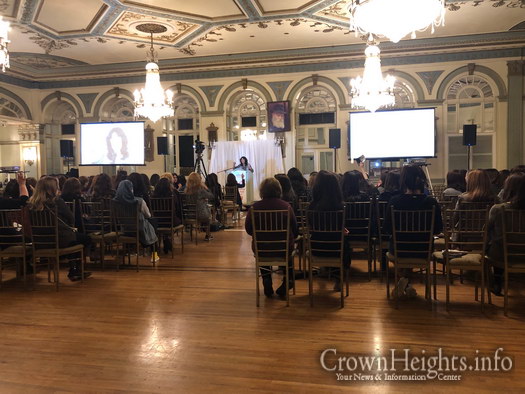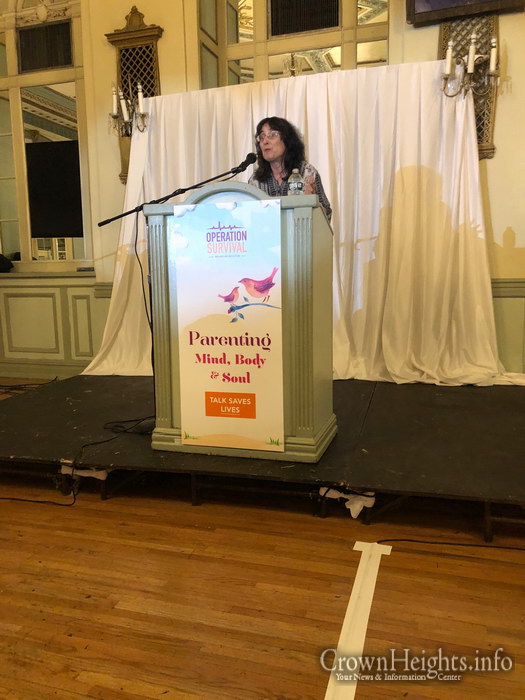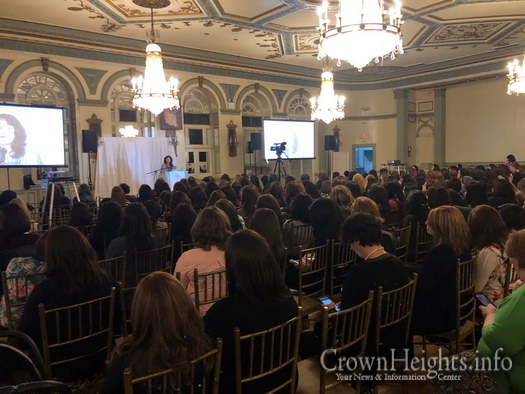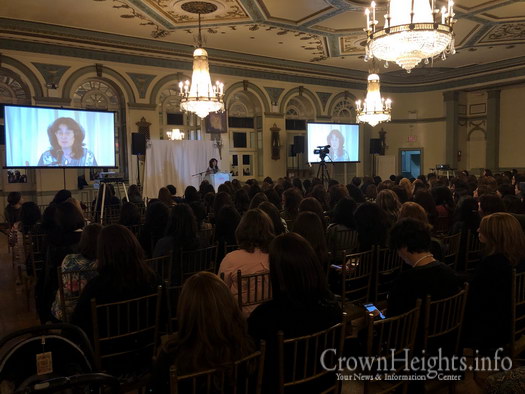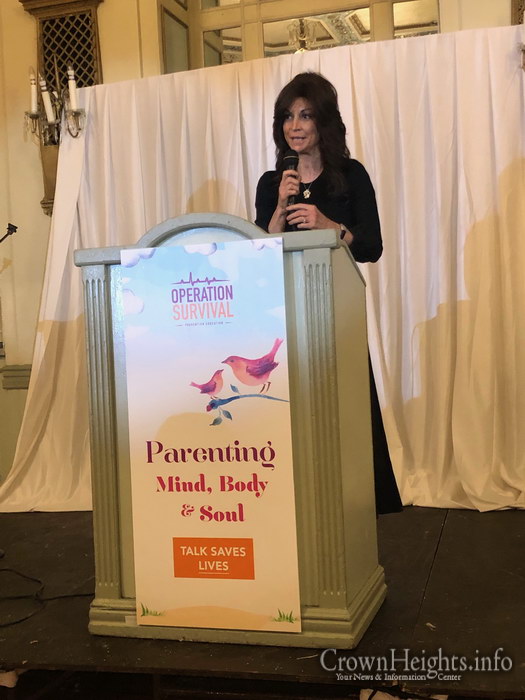
Operation Survival’s 2nd Annual Evening of Outstanding Parenting Education for Women
On Tuesday May 28th, 350 Crown Heights women gathered at Oholei Torah for Operation Survival’s 2nd Annual Evening of Outstanding Parenting Education for Women.
They were welcomed by Mrs. Dena Gorkin, Founder and Principal of Bnos Chomesh, Director of Community Education at Operation Survival. Mrs. Gorkin offered words of chizuk about our role as parents and educators, highlighting the Lubavitcher Rebbe’s message of making the home a place of “varmeh chassidishe lichtikeit”–warm chassidic light. Quoting from Mishlei, Mrs. Gorkin elaborated on the idea of educating the child according to his/her own way so that they won’t stray away from it as adults. As parents, our job is to create that warm chassidishe environment in the home by expressing our own joy in doing mitzvos.
The delightful evening included two authors and speakers, each an expert on a different aspect of parenting.
The first to take the podium was Joanna Faber, who spoke about her life’s work teaching productive and effective communication with children. The daughter of one of the authors of the acclaimed “How to Talk so Kids Will Listen”, Joanna grew up experiencing these techniques and is bringing her mother’s message to new generations of parents. Her talk focused on understanding our children’s feelings and how parents can engage cooperation without threats or bribes. At the core of Joanna’s approach is empathy — accepting our children’s feelings. One key to improving children’s behavior is helping them to acknowledge negative feelings so they can move past them.
Faber’s self-effacing style, animated voices, and lively humor evoked laughter from the crowd, as she shared her personal struggles with her own three children, as well as the struggles of women in her parenting classes.
Joanna listed 4 practical tips for parents to accept their children’s feelings and motivate them:
* Give choices when possible. When a child is likely to resist a situation, such as which outfit she will wear, offer two options and let her choose. Joanna stressed that the choices obviously have to be acceptable to both parent and child (so “keep Shabbos” and “don’t keep Shabbos” would never be offered as choices, but “blue shirt” or “white shirt” might be).
* Give children a fantasy what they cannot have in reality. Sometimes a child wants something that we can’t give now. Your son wants strawberry yogurt but there is none in the house. Instead of weathering a tantrum, offer your child to make a shopping list and put “strawberry yogurt” at the top of the list.
* Help children communicate about emotions. When a child is angry or sad and can’t seem to express or get a handle on her emotions, have her draw a picture of how she feels, or draw tears on a sad face to show how sad she is.
* Gain cooperation by making the task a game or a race. It’s bedtime and your children’s bedroom floor is littered with everything they wore today. Instead of arguing with them to clean up, say “Let’s play Laundryball!” Each child gets a turn to roll up an item of clothing and shoot it into the hamper. Give points each time they make a basket. Winner gets a big hug!
Next up was Mrs. Slovie Jungreis Wolff, world renowned lecturer and author of “Raising Children with Soul.” Growing up in the home of her illustrious parents (her father a Rov, her mother the famous Rebbetzin Jungreis), both Holocaust survivors, Slovie’s message centered on “attitude of gratitude.”
Mrs.Wolf shared the basics of her book on raising children with character, gratitude, and kindness. Just like the “Modeh Ani” we say every morning, the foundation of her work is “Hakaras hatov”. The most important things she urged the audience to practice at home and instill in children are:
* To appreciate those we sometimes take for granted, like bus drivers, servers in restaurants, and most importantly, parents, who do so much for them every day.
* To appreciate the time you spend together, because family is a privilege.
* To have priorities: “Hafatzas Chesed”, passion and compassion
* To be truly present for our children in both mind body and soul in meaningful ways
* To “Be a Moshe”, to cry for the pain of another, not for trivial things
Mrs. Wolff also spoke about the damage we do to our relationships in this era of modern technology. We are all easily connected through technology (mobile phones, social networks, etc.) yet we are living in a world of disconnect. In order to regain the authenticity of human relationships, we must start with ourselves and our children.
Many of the women who attended stayed after the event to talk to both speakers, and discuss the takeaway lessons with one another.
For more tools for parents on substance abuse prevention, dealing with bullying and more, check out Operation Survival’s new videos series Prevention101
